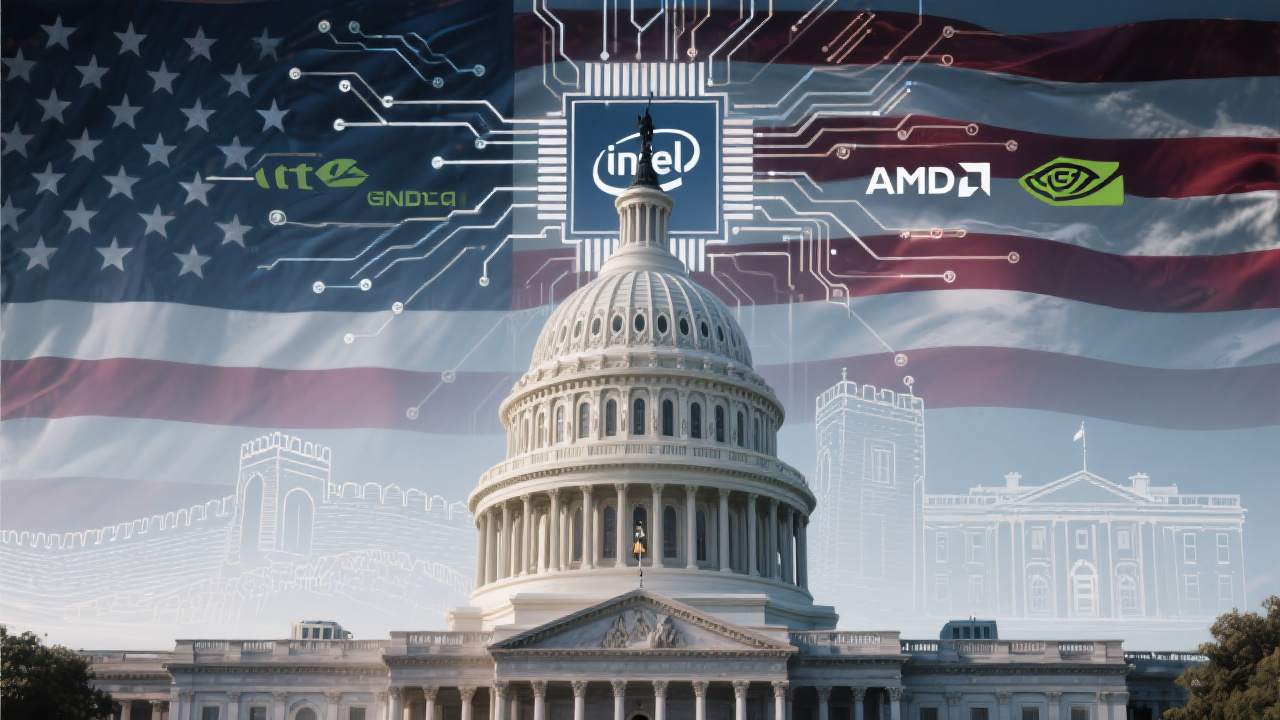The New Playbook: From Nvidia and AMD to Intel, the Government Wants a Piece of Your Action

The Trump administration’s push for a government stake in Intel isn’t happening in a vacuum. It’s the latest in a string of unprecedented interventions that have upended the old rules of American capitalism.
Just weeks before the Intel news broke, the White House strong-armed Nvidia and AMD, two of the world’s most valuable chipmakers, into a deal that would have been unthinkable just a year ago.
Here’s what happened: In exchange for the right to sell certain AI chips to China, Nvidia and AMD agreed to hand over 15% of their China derived revenue to the U.S. government. This “tax” isn’t a tariff or a fine. It’s a direct cut of their business, negotiated at the highest levels, and it’s now the price of doing business with America’s biggest geopolitical rival.
The End of “Hands-Off” Capitalism?
This is not the capitalism of Milton Friedman or Ronald Reagan. The government isn’t just setting the rules of the game, it’s jumping onto the field, demanding a share of the profits, and picking winners and losers in real time. The deal with Nvidia and AMD is so unusual that legal scholars are openly questioning its constitutionality, and business leaders are privately calling it a “shakedown.”
The logic, according to the administration, is that semiconductors are now as strategic as oil or steel. If the U.S. is going to let its crown jewels be sold abroad, especially to China, it wants a piece of the action. But critics warn that this is a dangerous precedent. If the government can demand a cut of chip sales today, what’s to stop it from doing the same in software, cloud computing, or even consumer electronics tomorrow?
A Pattern Emerges: The State as Shareholder, Tax Collector, and Gatekeeper
The pattern is clear. First, the administration forced Nvidia and AMD to pay for the privilege of selling to China. Now, it’s trying to convert Intel’s CHIPS Act grants into a 10% equity stake, making the government the company’s largest shareholder. In both cases, the message is unmistakable: If you want access to markets, subsidies, or regulatory relief, you’ll have to give something up, be it cash, equity, or control.
This is not just about chips. The White House has already taken a “golden share” in U.S. Steel as part of the Nippon Steel deal, and it’s threatened Apple with tariffs unless it invests more in U.S. manufacturing. The line between public and private, once sacrosanct in American business, is blurring fast.
Is This the End of Capitalism as We Know It?
For decades, American capitalism was defined by its faith in markets, its suspicion of government intervention, and its belief that private enterprise should be left to its own devices. That era is over. The new model is transactional, interventionist, and unapologetically muscular. The government is no longer just a referee, it’s a player, a partner, and sometimes, the house.
Some see this as a necessary adaptation to a world where economic power is national power, and where rivals like China have never played by the old rules. Others see it as a dangerous slide toward cronyism, protectionism, and the politicization of business. Either way, the old playbook is out the window.
The World Watches and Wonders What’s Next
The rest of the world is watching, and not without anxiety. China, for its part, has called the new U.S. tactics “unilateral bullying.” European and Asian tech giants are quietly recalibrating their own strategies, wondering if they’ll be next in line for a White House “deal.” Investors are left to guess which companies will be favored, and which will be squeezed.
For now, the Trump administration’s moves have given American chipmakers access to the Chinese market, at a price. But the long-term consequences are still unfolding. Will this new model make America stronger, or will it undermine the very dynamism that made Silicon Valley the envy of the world?
One thing is certain: This is not normal. And for better or worse, it may be the new American way.
